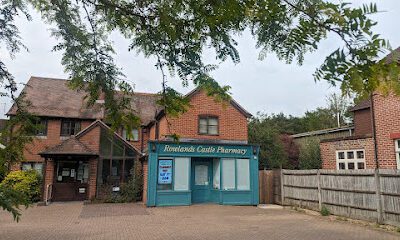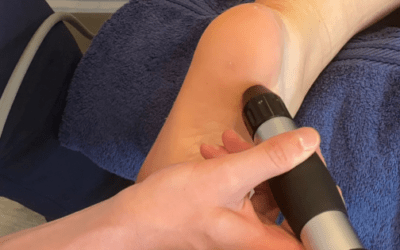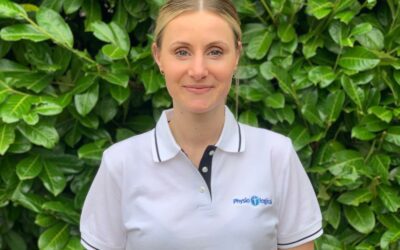Common Skiing Injuries and what to do?
We have previously covered one of the most common ski injuries which is Medial Collateral Ligament (MCL) Sprain.
Today we will cover Anterior Cruciate Ligament (ACL) Sprain. I am talking from both professional and personal experience here. I ruptured both of my ACL’s playing netball!
What is the ACL?
The ACL is a ligament which crosses over with the posterior cruciate ligament deep inside your knee joint.
Why is the Anterior Cruciate Ligament important?
The role of the ACL is to stabilise the knee joint. It stops the shin bone (tibia) from dropping forwards on the thigh bone (femur). It is also very important for proprioception (telling the brain when your leg is in space) i.e. there are receptors in the ACL which when walking along will provide feedback to the brain to say there is a curb coming up you must lift your leg up now, so you do not have to constantly look down to see curbs are coming.
How can the ACL be injured?
The most common way to injure your ACL is on a fixed knee then you twist awkward. The way I injured mine was running back into the D, I jumped and as I landed my knee dropped in then overextended, twisted and gave way. It is very common to hear a big ‘POP’ as the tendon tears.
Skiers are most at risk when landing jumps, skiing moguls or twisting your knee. Another way is overextending or over flexing (bending) or a direct blow to your knee. Lastly, if you fall and your bindings do not release then that can cause an ACL injury too.
How will I know if I have ruptured, torn or sprained my Cruciate Ligament?
- A classic sign is immediate and lots of swelling
- Unable to weightbear initially without support
- Not wanting to over extend your knee as it feels like it will drop back on itself
- Giving way
- Restricted knee bend
There are different types of ACL injury:
Partial Tear – where not all of the fibres are torn
Complete Rupture (Full Tear) – where all of the fibres are torn
So have I ruptured my ACL or not?
A physiotherapist or sports therapist will be able to do an assessment where they will ask about the injury and then do some hands on tests which can tell you if you have or have not ruptured your ACL.
Sometimes an MRI is useful to diagnose an ACL tear but this is not always required.
Early Treatment
In the early stages the aim of treatment is to get the swelling down and get full movement back.
Please be aware of your body and take advice from your GP before exercising or send an email to (enquiries@physio-logical.net) for advice and guidance. All these exercises should be pain free.
Ice – apply ice to your knee either side of your knee cap (protect your skin with a towel) x 15 minutes x 3 / day.
Knee flexion:
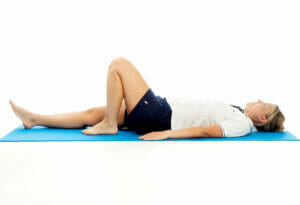 |
|
Static Quads
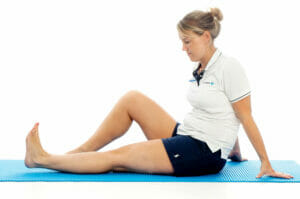 |
|
You can also view our demonstration videos for these exercises on our YouTube channel (coming soon – watch this space!)
Further Treatment and Exercises
Long term the main goal of treatment is to strengthen all of the knee muscles to stabilise your knee. Plus it is important to strengthen your glutes and calf muscles too.
The really important muscle to strengthen is the hamstrings as the hamstrings role is to stop the forward movement of tibia on the femur as is the role of the ACL too.
An individual assessment for areas of muscle weakness would be required to provide a tailored rehabilitation programme.
Do I need surgery or not?
A lot of people do manage without an ACL as long as they complete a structured rehabilitation programme supervised by a physiotherapist or sports therapist. I personally did do rehab exercises for a few months but then opted to have my ACL reconstructed surgically. The reason I opted to have surgery was because I wanted to get back to netball and my knee didn’t feel stable enough to get back to netball despite doing some rehabilitation exercises.
Prior to having my operation I did lots of rehab exercises and cycling to make sure my muscles were as strong as they could be for the op. This was really useful.
So you might be thinking should I see a physio/sports therapist or should I go straight to see my doctor or consultant?
Personally I was assessed by my physio colleague and was under the physio team first for rehab before I saw a consultant.
If I have my ACL reconstructed what is next?
Following ACL reconstruction surgery there is a lengthy period of rehabilitation guided by a physio or sports therapist.
This will involve various exercises to regain full movement, strengthen, stability, control, balance (proprioception) and then sports specific rehab exercises and guided return to sport.
This whole process takes 9 months to 1 year.
It is really important you do your exercises and don’t return to play/sport too soon as it is likely you may re rupture your ACL.
If you have hurt your knee skiing or have any other niggles, aches or pains since skiing then we can help you. Please call 023 9435 0270, email enquiries@physio-logical.net or book online.
If you are going skiing soon and want to do some exercises which can help to reduce the risk of injury then please see our previous blogs about ski fitness exercises part 1 and part 2.


